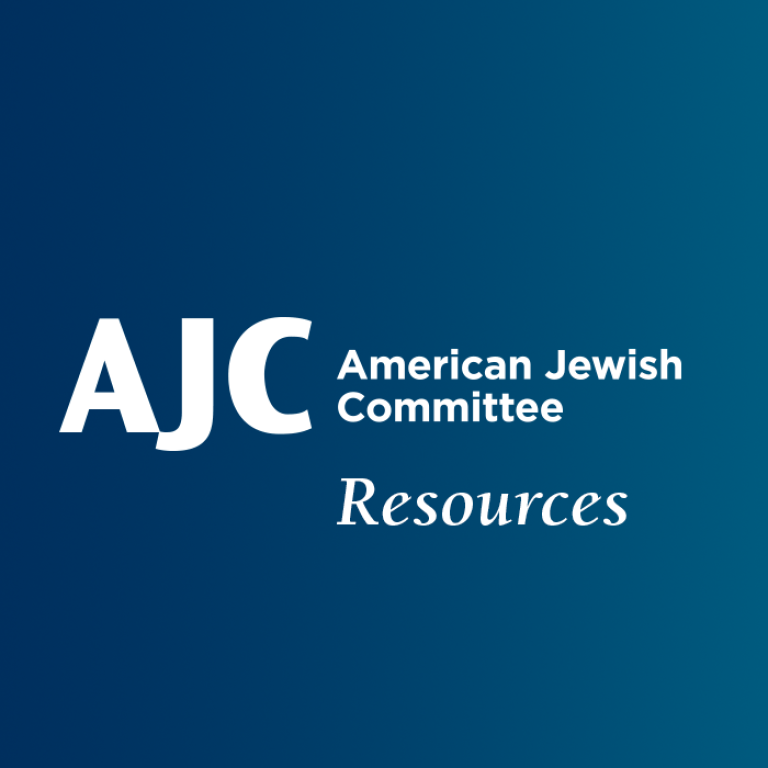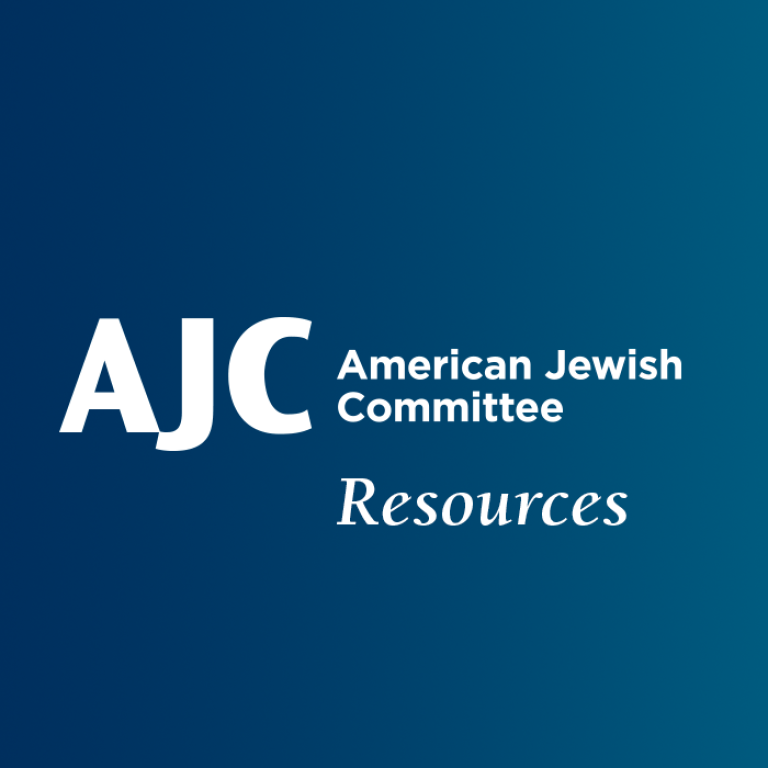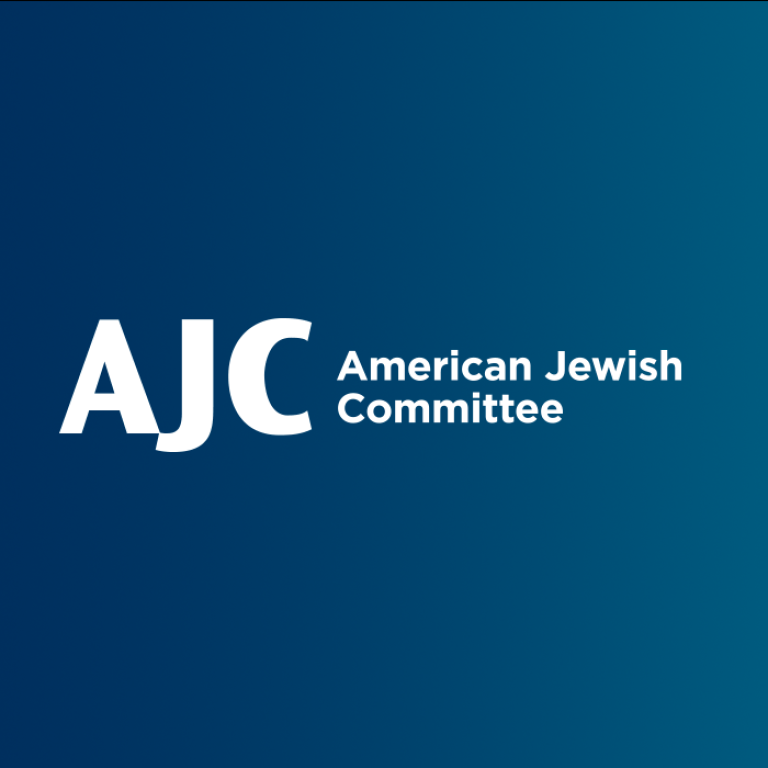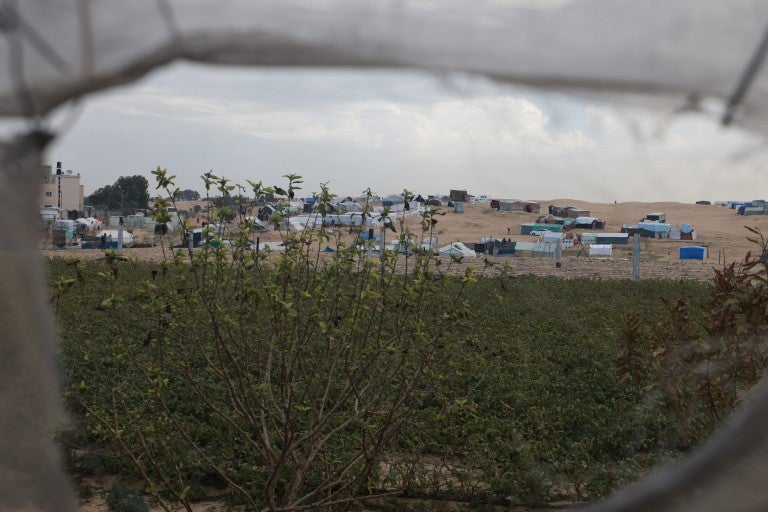- Information as of the morning of 10/13/2023 -
At this painful and challenging time, AJC would like to offer guidance to our academic partners and administrators on ways to effectively respond to the recent terror attacks in Israel. Below, you will find guidance on making strong statements, speaking at public events and gatherings, and suggested ways to support your local Jewish campus community. At the bottom of this doc, we’ve also included a brief background section for further information. Please don’t hesitate to contact your local AJC regional office or our Director of Academic Affairs, Sara Coodin.
Guidance on making strong statements:
We strongly encourage academic administrators to make clear, unequivocal statements that include:
- Standing with the U.S. and other world leaders in affirming support for the people of Israel, who are experiencing the most devastating terrorist attacks on civilians in the nation’s history, and condemning the murder and kidnapping of Israeli civilians, including women, children, and the elderly at the hands of Hamas terrorists.
- Affirming support for students, faculty, and staff with ties to the region who are coming to terms with the loss of friends, relatives, and colleagues.
- Offering support and resources to help students, faculty, and staff who are directly impacted by these horrifying and tragic events.
- Encouraging campus citizens to be mindful that this is a time when many in their midst are grieving and in pain. This is a time when individuals and student and faculty groups should be particularly mindful of the impact their speech can have on the campus community as a whole and especially on those who have been directly affected by these tragic events.
- Strongly discourage individuals and campus groups from engaging in harmful public vitriol at this sensitive time. Encourage efforts that bring communities together in peaceful solidarity and mutual support.
- For three examples of excellent statements/letters to the campus community:
Guidance for speaking at public gatherings on campus:
- Acknowledge the scale and impact of the terror attacks. Over 1300 Israelis have been killed, over 130 have been kidnapped/are missing. Many more deaths will be counted in the coming days and weeks. Overwhelmingly, these numbers reflect the murder and abduction of innocent civilians: the elderly, women, and children. The scale of human suffering and scope of the attacks throughout the tiny nation of Israel is immense and may be difficult for those of us here, in a nation as large as the United States, to comprehend.
- It’s vital to remember that these casualty numbers in Israel do not reflect two armies engaged in warfare. This is the product of terrorism, the act of deliberately taking the lives of innocent civilians. The Israeli people, like any other, reflects a multitude of ideological and political perspectives. No innocent civilian deserves to be murdered simply because of their citizenship.
- Those of us who live and work on campuses must remember the importance of recognizing and affirming the immense pain of individuals who are directly impacted by this week’s events and who will continue to be impacted in the weeks and months to come.
- There are students/faculty/staff on this campus who are feeling this directly - friends, family members, and colleagues who are among the missing and killed; members of the armed forces who are being called up for active duty and are risking their lives to defend their nation and fellow citizens. Now is the time to recognize the scale/scope of the tragedy as people bury their dead. Now is the time to affirm support and extend empathy for those on our campus who are most directly impacted by these tragic events.
- It’s vital that we recognize our shared humanity in these conflicts and work towards seeing and acknowledging the pain and loss being experienced by the people with whom we share our day-to-day campus lives. Both Israelis and Palestinians are feeling the anguish of losing innocent loved ones to violence. Please remember that empathy is not a zero-sum undertaking.
- We also need to be mindful not to equivocate or try to establish false moral dichotomies that make some people’s deaths excusable, invisible, or irrelevant. Every lost life impacts that person’s family, friends, and loved ones. There can be no excuse for the cruelty of targeting civilians in their homes, committing rapes, kidnapping children, women, and elderly people, including Holocaust survivors. And there should be no limit placed on our capacity for empathy for all innocent victims of war.
- It is vital that we find ways to come together in our community in these moments of mourning and sadness. The university’s administration will be [please list supportive steps administrators will be taking to support students, faculty, and staff. Outline some of the key resources in place to support the mental health and wellness of campus citizens.]
- We also want to emphasize the importance of staying present and finding community here on campus that can allow those of us who are most impacted to feel less alone as we mourn. Let’s remember that this is, overwhelmingly, a human tragedy, not a social media story or fodder for political point-making. The vast majority of us are seeing this conflict unfold from a distance, not up close. But for some of us, it is undeniably personal, emotional, and heartbreaking. I encourage you all, as individuals and in whatever capacity you may be involved in group work on this campus, to be mindful that the media you choose to consume and share has an impact on our community and our ability to be in community here together. You have an important role to play in making responsible choices about which media you consume and choose to share in your networks. Please find ways to remain mindful of finding your way back to community and the face-to-face relationships that bind us together rather than seeking ways to spread outrage, no matter how justified it may seem.
Ways you can support your local Jewish community on campus:
- Reach out to Hillel, Chabad, Jewish fraternities and sororities, and Jewish student clubs to express support and see if anything is needed, such as extra security.
- Offer to participate in peaceful rallies and/or unity shabbat programs sponsored by Jewish student groups.
- Offer to meet with Jewish student leadership.
- Join AJC Project Interchange on our next educational delegation for university administrators to Israel to show your commitment to learning more about the Israeli-Palestinian conflict.
Background:
- On Saturday 10/7, which, in addition to being the Jewish Sabbath, was also the holiday of Simchat Torah (Rejoicing in the Torah) and the day after the 50th anniversary of the Yom Kippur War, Hamas terrorists crossed the border between Gaza and Israel in multiple ways (ground, air, sea) and mounted an organized surprise attack on Israel. Terrorists entered Israeli towns, kibbutzim, and villages, murdering, raping, and kidnapping innocent civilians, including babies, young children, mothers, and the elderly. The terrorists mowed down young adults at a music festival, murdering 260 and kidnapping many others. In addition, Hamas has launched over 5000 rockets at Israel, some of which reached as far as Tel Aviv. At times, the Iron Dome defense system was overwhelmed and could not stop the barrage.
- Saturday, October 7th was the deadliest day for Jews since the Holocaust.
- As of this note, more than 1300 Israelis have been killed. In addition, citizens of at least ten other nations have been murdered: 27 American citizens, as well as citizens of France, Thailand, Germany, Nepal, Canada, Ukraine, Mexico, Brazil, and more. Approximately 3500 have been injured. There are approximately 130 hostages being held by terrorists in Gaza, including women, children, and the elderly, and including an as yet undetermined number of American citizens.
- The key targets of this unprovoked and vicious attack by Hamas were innocent civilians who were living their regular lives and celebrating the Jewish Sabbath and the last day of the Jewish fall holiday season. Children were playing in their rooms, grandmothers and Holocaust survivors were waking up when Hamas militants stormed into their home and killed or abducted them.
- Hamas is an Iranian-backed terrorist organization. Like many terror groups across the Middle East, including Hezbollah in Lebanon, Palestinian Islamic Jihad in Gaza, and Houthi militants in Yemen, they are funded, trained, armed, and supported by the Iran regime. In the last few days, they showcased their evil through a massive and coordinated attack against Israeli civilians.
- Looking forward: As Israel proceeds with a ground war in Gaza, the number of civilian Palestinian casualties will climb, and the humanitarian crisis in Gaza will escalate. Israel is obligated to eradicate the threat to its population posed by Hamas, even at a painful human cost.





